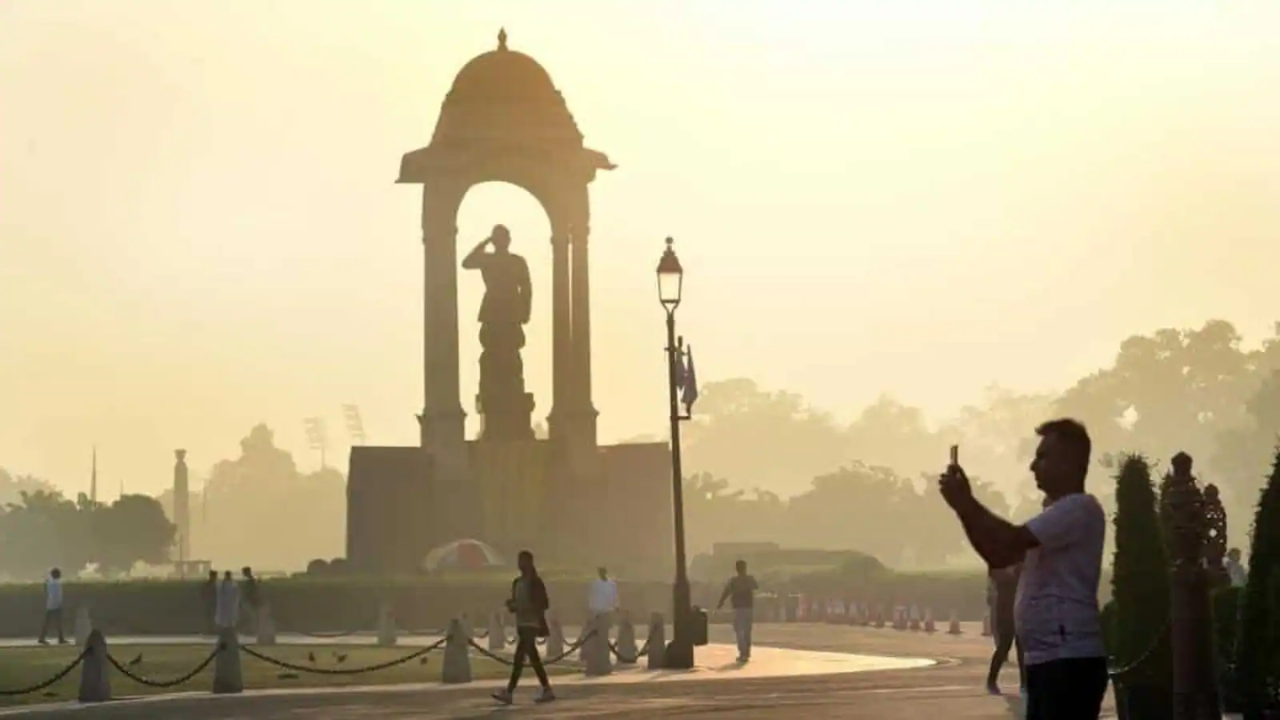

Amid worries regarding stubble burning in neighboring Punjab, Haryana, and Uttar Pradesh, the general air quality in the capital city remained within the ‘moderate’ classification on Wednesday. The overall Air Quality Index (AQI) in the national capital was logged at 83, showing a slight improvement from the Tuesday figure of 89.
During a conversation Shri Krishna, a resident of Delhi’s Old Rajinder Nagar who was taking a morning walk at Kartavya Path, shared, “I can’t be certain if pollution has a role in it, but we are experiencing a bit of difficulty in breathing due to a sudden change in weather patterns in the city. I’m no expert, but suspended particles in the air might be a contributing factor.” He remarked that with the distinct nip in the air and the drop in temperature, pollution is likely to escalate.
His wife, Sadhna, however, downplayed the concerns, stating, “We reside in a more polluted part of the city, and the air quality here seems relatively better than what we are accustomed to.”
In an earlier meeting at the Secretariat on Tuesday, the Delhi Pollution Control Committee (DPCC) Board addressed the action taken report and various technical matters from the previous meeting. Anil Gupta, an expert member of the panel, disclosed that the concerns about air quality or pollution were not on the meeting’s agenda. Nevertheless, he confirmed that the DPCC chairman had assured him that pollution matters would be discussed in future panel meetings.
In the meantime, Mumbai’s overall air quality on Wednesday morning was categorized as ‘moderate,’ with an AQI of 113. However, according to the System of Air Quality and Weather Forecasting and Research, SAFAR-India, the air quality at Mumbai’s Chhatrapati Shivaji Terminus (CST) was in the ‘very poor’ category with an AQI of 301. The AQI in the Mazagaon area was recorded at 311, while in the Colaba area, it stood at 107.
The Air Quality Index (AQI) is a tool used to communicate the air quality status to the public in an easily understandable manner. The scale ranges from “good” to “severe,” with specific categories determined based on the concentration values of air pollutants and their potential health impacts. A reading above 450 is deemed “severe+.”
Also Read: US President Joe Biden Leaves For Israel As Tensions Escalate in the Region
Catch all the Latest Business News, Breaking News Events, and Latest News Updates on NewsX
A high-speed Lamborghini crash in Noida's Sector 94 has left two labourers injured, with one…
Earlier on Sunday, Iranian President Masoud Pezeshkian stated that Iran had turned down the possibility…
Three years after the untimely passing of cricket legend Shane Warne, new revelations suggest a…
As the joyous festival of Eid-ul-Fitr is celebrated across the world, prominent personalities from different…
From his heroic century in the World Test Championship final to his game-changing knock in…
The Indian stock market benchmark indices experienced a decline, causing concern among investors and shifting…